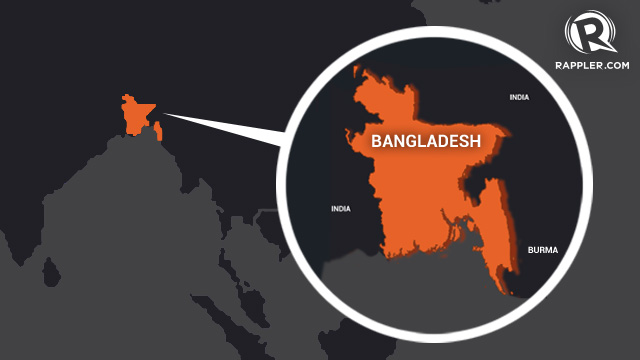SUMMARY
This is AI generated summarization, which may have errors. For context, always refer to the full article.

DHAKA, Bangladesh – Four people were killed in strikes across Bangladesh Tuesday, October 29, bringing to 20 the death toll in demonstrations aimed at forcing the premier to make way for a caretaker government ahead of elections.
An official said officers opened fire on remote Kutubdia island in the Bay of Bengal after hundreds of protesters from Jamaat-e-Islami, the country’s largest Islamist party and a key ally of the main opposition Bangladesh Nationalist Party (BNP), attacked police with rocks and sticks.
“Two protesters have died in the firing,” district administrator Ruhul Amin told Agence France-Presse, adding that about a dozen policemen were injured in the clashes.
Two more demonstrators were in critical condition after being shot, Kutubdia health centre doctor Abul Bashar told Agence France-Presse, and were referred to a hospital on the mainland.
Another two people were killed in an earlier series of clashes between the opposition and ruling party supporters Tuesday.
The four fatalities brought to 20 the death toll since Friday, October 25, when the opposition began a push to force Bangladesh Prime Minister Sheikh Hasina to quit.
After a series of mass rallies at the weekend, the BNP and its Islamist allies launched a three-day general strike, which ended Tuesday.
BNP leader Khaleda Zia, who has twice served as premier, has branded the current government “illegal” and says that a neutral caretaker government must be set up three months before national elections, due in January.
Hasina has scrapped the caretaker system and instead proposed an all-party interim government led by herself to oversee the polls.
On Saturday, October 26, Hasina invited Zia to hold talks and urged her to postpone the strike, during a 40-minute phone conversation believed to be the first time the “battling begums” have spoken in at least a decade.
“Begum” is an honorific for a Muslim woman of rank.
Zia spurned the request, but said she was ready for talks after Tuesday.
Leaked audiotape of the conversation has since showed the two leaders spent most of the conversation quarreling over their past records.
“You killed people by carrying out the August 21 grenade attack,” Hasina said during the call, referring to blasts at her rally in 2004 which injured her – then the opposition leader, and killed at least 20 people.
“We did not do the killing. The longer you live is better for us. The more indecent language you use, the better for us,” said Zia.
Hasina also accused Zia of celebrating a fake birthday on August 15 – which is also the anniversary of the assassination of Hasina’s father, who was the country’s founding leader, along with almost her entire family.
Zia shouted back: “Can’t anybody be born on that day?”
Bangladesh has been ruled alternately by Hasina and Zia since 1991, apart from when a military-backed government ran the country between 2007 and 2008.
Scores of people were injured as the opposition staged demonstrations in almost every city and town across the country on the third day of the strike.
Police officials told Agence France-Presse a protester was hacked to death by ruling party activists in western Magura town, and another drowned at a coastal town in Chittagong as he tried to escape clashes between rival supporters.
A senior police officer and an eight-year old child were seriously injured by small bomb attacks in the capital Dhaka.
“Hit by seven splinters, the officer was rushed to hospital. He is seriously injured but now out of danger,” Maruf Hossain, deputy commissioner of Dhaka police, told Agence France-Presse.
Amid mounting tensions over the spiraling political violence, a court in Dhaka has postponed its verdict on 823 soldiers accused of massacring scores of top army officers in a mass mutiny in 2009 soon after Hasina came to power.
While no senior officers were implicated in that mutiny, the uprising fueled the sense that many people serving in the military were opposed to Hasina.
Since independence in 1971, Bangladesh has seen at least 19 coups – although the power of the military has diminished in recent years.
While the nation has a long history of political violence, this year has been the deadliest since the former East Pakistan broke away from Islamabad and gained independence.
At least 150 people have been killed since January after a controversial court began handing down death sentences on Islamist leaders allied to ex-premier Zia. – Rappler.com
Add a comment
How does this make you feel?
There are no comments yet. Add your comment to start the conversation.